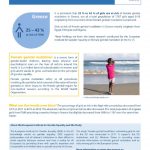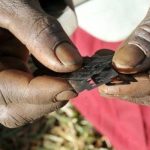Greece

- Australia
- Benin
- Brunei
- Burkina Faso
- Cameroon
- Canada
- Central African Republic
- Chad
- Colombia
- Côte d’Ivoire (Ivory Coast)
- Denmark
- Djibouti
- Egypt
- Eritrea
- Ethiopia
- France
- Germany
- Ghana
- Guinea
- Guinea-Bissau
- Indonesia
- India
- Iran
- Iraq
- Ireland
- Jordan
- Kenya
- Kuwait
- Liberia
- Malawi
- Malaysia
- Mali
- Malta
- Mauritania
- Mexico
- Niger
- Nigeria
- Oman
- Pakistan
- Peru
- Portugal
- Russia
- Saudi Arabia
- Senegal
- Sierra Leone
- Singapore
- Somalia
- Somaliland
- South Sudan
- Spain
- Sudan
- Sweden
- Switzerland
- Tanzania
- Thailand
- The Gambia
- The Maldives
- Togo
- Uganda
- United Arab Emirates
- United Kingdom
- United States of America
- Yemen
- Zambia
- Zimbabwe
Population
10.4 million (2019)
2019 population growth rate
-0.46%
Estimated prevalence among girls and women
Unknown. According to media reports, NGOs working with refugees and immigrants claim that thousands of women in Greece have undergone the practice.
Between 25% – 42% of girls from countries that practice female genital cutting (FGC) and living in Greece are at risk. So far, it is known to be practised mostly among refugee women coming from Egypt, Nigeria, Ethiopia.
Source: EIGE
Type practised
Unknown. There are reports of all types of FGC being practised, depending on the girl’s community. Women with FGC living in Greece have an increased risk for cesarean section due to obstetricians’ unawareness of the condition and the fear of handling women with FGC.
Source: Keep Talking Greece, FGM in Greece
Age
Greek NGO members have said that dozens of girls under 15 have gone through the process. In many cases, the girls are very young or are infants only a few months old.
Source: ProtoThema
Agent
Members of minority communities, strongly believe in getting their daughters cut, citing moral and religious obligation. Since many parents cannot return home to their countries, they may hire specialised cutters to do the job. According to media reports, some Muslim communities have made arrangements in Athens where some agents are hired to ‘cleanse’ a girl. Additionally, elderly women and imams are reported to sometimes be involved in the procedure of stitching and partial or total removal of external female genitals.
Source: ProtoThema
Legal status
FGC is illegal in Greece. Greece ratified various international conventions against FGC, including Universal Declaration of Human Rights, Convention on the Elimination of all Forms of Discrimination against Women, Convention on Rights of the Child. Cases related to FGC can be criminally prosecuted under Articles 308, 309, and 310 of the Penal Code, referring to criminal offences or bodily injury and harm, and bodily harm against a minor. FGC is considered a violation of human rights, and child abuse. The Asylum Law within Greece can also be used to grant refugee status to women or girls who have undergone FGC.
Source: The European Institute for Gender Equality
Progress to end FGC
-
Greece developed an action plan called the Greek National Plan of Action to Prevent and Eliminate FGM in 2009. This was led by a consortium of civil society organisations, who focused on raising community awareness, education and empowerment for community stakeholders – especially religious and community leaders. The National Action Plan for Reproductive and Sexual health 2008-2012 refers to FGM by stipulating that the right to protection from FGC is one of the twelve sexual and reproductive rights in the country. Source: EIGE
- In 2015, Greece granted asylum to a Kenyan woman who sought international protection in Greece for herself and 3 children.
- In 2017, NGOs working with refugees and migrants said many were affected by FGC. An investigation was launched by Chief of the Public Prosecutor’s Office Elias Zagaraios in response to these reports. EIGE reports that, although a number of girls are at risk, communities are beginning to turn away from the practice because of the law and integration efforts. Young second-generation women, especially from Egypt, Nigeria, Somalia and Sudan have strong opinions against the practice.
Challenges to progress
- Although the National Action Plan to End FGM in 2009 was comprehensive, it was not adopted or assigned to any authority or implementing agency.
History
Women and girls from refugee and migrant community in Greece are thought to be affected by cutting, particularly from Somali, Sudanese, Indonesian, Pakistani, Egyptian, Nigerian communities.
Human Development Index ranking
Rank 31 in 2017.
Infant mortality rate
4 deaths per 1,000 live births (2018).
Maternal mortality rate
3 deaths per 100,000 live births (2017).



